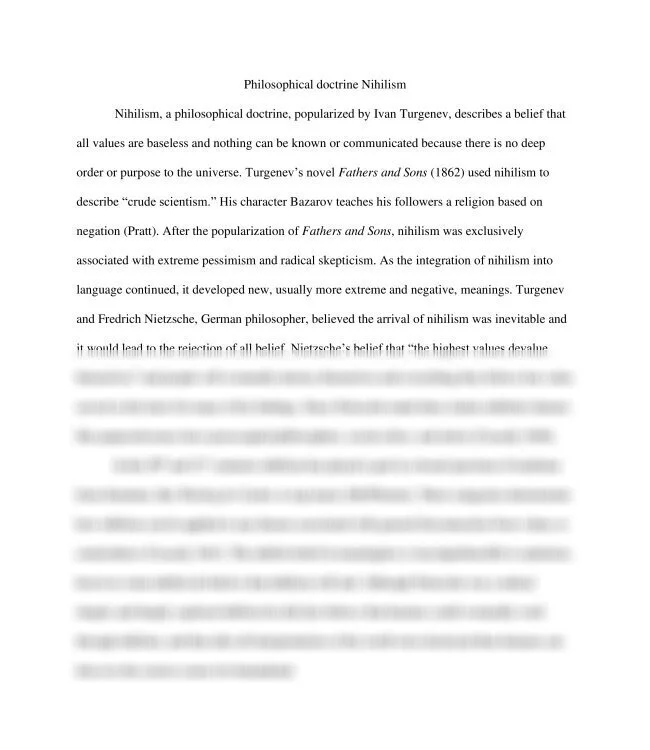Philosophical doctrine Nihilism "Hip-Hop "How "Internet Nihilism, a philosophical doctrine, popularized by Ivan Turgenev, describes a belief that all values are baseless and nothing can be known or co
Philosophical doctrine Nihilism "Hip-Hop "How "Internet Nihilism, a philosophical doctrine, popularized by Ivan Turgenev, describes a belief that all values are baseless and nothing can be known or co
"Hip-Hop "How "Internet "Nihilism." (1862) (Cassedy (McWhorter). (Pratt). (Summer 11 1638-1641. 1640). 1641). 2003). 2005. 2008. 2014. 20th 2161-0002. 21st 4. After Alan. Although As At Back." Bazarov Be Blacks Cassedy, Cause Censored Charles Cited City Cline Contain Context. Detroit: Dictionary Ed. Encyclopedia Espejo. Exploitation? Fathers Fredrich Gale German Godot, Gratuitous Greenhaven H. Harm." Hip-hop His History Holds Horowitz. ISSN Ideas. In Internet Issue. Ivan John Journal Library. Lyrics Maryanne McWhorter, Music New Nietzsche Nietzsche, Nietzsche’s Nihilism Nihilism, Nov. Opposing Philosophical Philosophy. Philosophy." Pratt, Press, Rap Reference Roman Rpt. Scribner's Should Since Sons Sons, Steven. The These Turgenev Turgenev, Turgenev’s Viewpoints Violence Virtual Vol. Waiting Web. Works a after all also and any applied are arrival artists as associated based baseless basis be because belief belief. believe believed broad by can categories centeredness centuries character claims communicated continued, correct could course critics, deep deeply demonstrate describe describes destroy destroyed devalue developed did disconnection discover do doctrine doctrine, end. eventually everything exclusively explored extreme findings. followers for from general has have he highest his how however humankind. humans in incomprehensible inevitable integration interpretations into is it known language lead like literature, made many meaningless meanings. mediums more music negation negative, new, nihilism nihilism, nihilist nihilistic no nothing novel of on optimists, or order part people pessimism philosopher, philosophers, philosophical played popularization popularized preoccupied purpose purposelessness radical rap rejection religion scientism.” served skeptic skepticism. social some spectrum teaches that the themes themselves themselves” then there these they through to universe. used usually value values was were will with work world would “crude “the
Nihilism, a philosophical doctrine, popularized by Ivan Turgenev, describes a belief that all values are baseless and nothing can be known or communicated because there is no deep order or purpose to the universe. Turgenev’s novel Fathers and Sons (1862) used nihilism to describe “crude scientism.” His character Bazarov teaches his followers a religion based on negation (Pratt). After the popularization of Fathers and Sons, nihilism was exclusively associated with extreme pessimism and radical skepticism.
